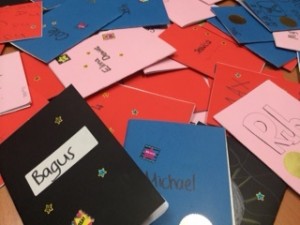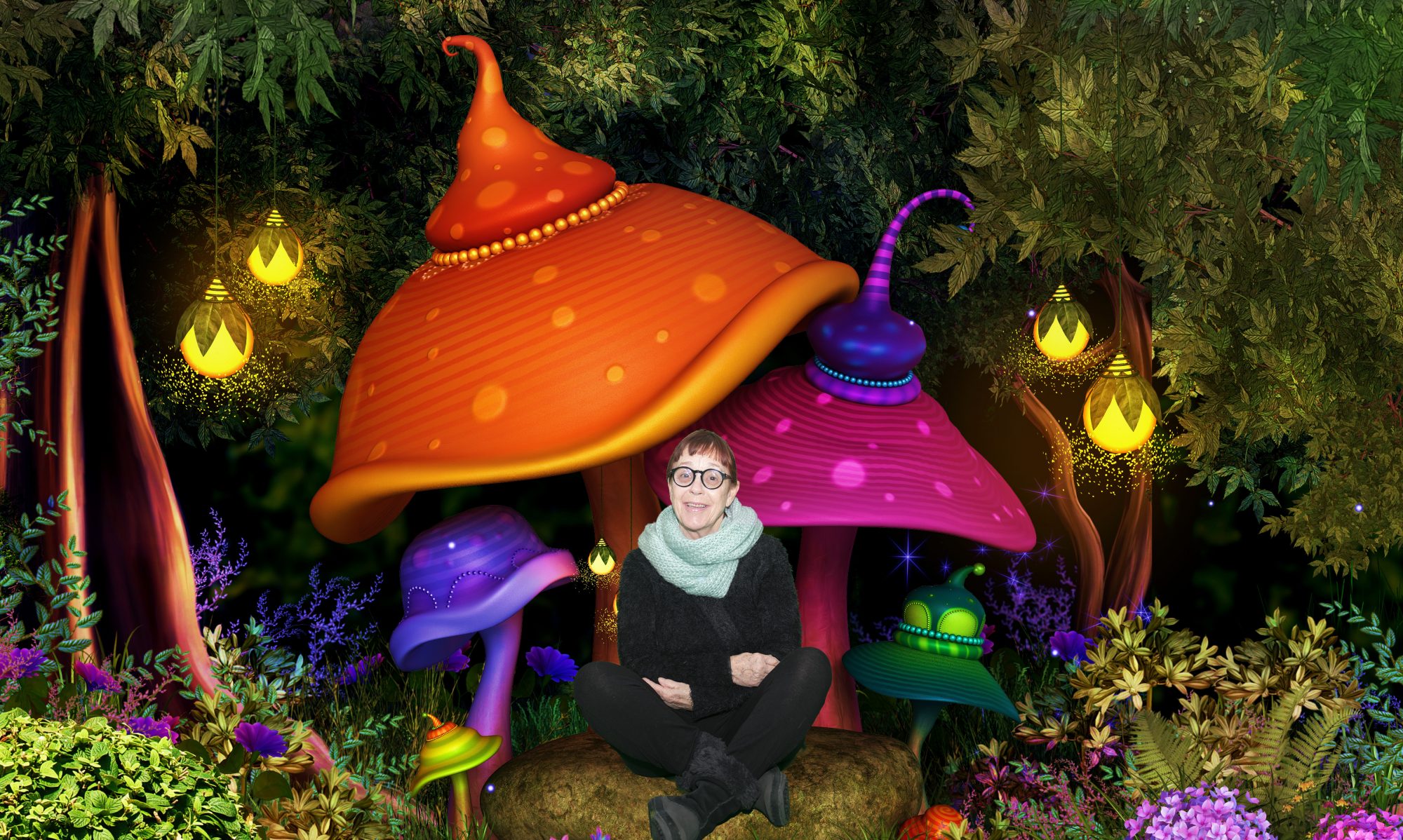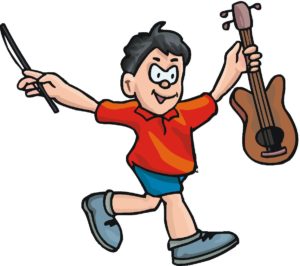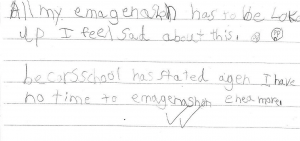What is the lesson for us?
We have just witnessed a n ight of terror, misery, violence and senseless deaths in Paris.
ight of terror, misery, violence and senseless deaths in Paris.
Young people who would rather die in what they perceive to be a glorious end where they will be remembered as martyrs!
Innocent people who just happened to be there.
We start to see all the right-wing forces of darkness coming out and blaming it all on Muslims, migrants etc.
WRONG!
This has nothing to do with religion. This is all about alienation, lack of values, understanding, sense of hopelessness, lack of purpose and desperate unhappiness.
If you want to see the beginning of this terrible alienation- look at the freezing conditions in the snowy camps in Lebanon. http://youtu.be/chTrI36rWSE
How will these children up with a sense of purpose?
Look at the Palestinian camps- whole generations have now lived there in conditions that none of us could even contemplate.
And yet we ignore this and just mutter about Islamists, Jihadists and bumble on in a dangerous fog of misunderstanding.
Conditions like this will always cause anger and deep alienation.
The anger spreads and alienated youth all over the world are swept up with it and empowered by the evil words that pour forth from those who seek to control, take vengeance and turn us back to the dark ages.
I have no answers- only a deep sadness today but this I know……..
• We have to start looking at our cossetted, indulgent lifestyles and spreading our blessings.
• We need to help ALL children feel loved, part of our community and with a sense of purpose.
• ALL children must be educated and helped to feel the deep sense of culture, tradition and values from their communities.
• Each one of us can take more interest in each other, our families, neighbours and communities.
For pity’s sake and for the sake of the next generation:
LET’S LEARN.
CAN WE FIX THE HOLE IN YOUR CHILD’S ARM?
Many parents and teachers come to us with problems associated with reluctant writers. Their children are simply not able to transfer their thoughts to paper even though they have very creative ideas.
Many children are not able to sift through the myriad possibilities when asked to write freely – they often need some guidelines. These children often think on all levels at once and find it extremely difficult to order their thoughts and know where to start.
Some children are perfectionist in nature and know their written efforts will not be as good as they wish.
No matter what the cause- the effect is the same! Ideas and words just drop out of the elbow before they reach the pencil. I call it LEAKY ARM SYNDROME! It works in the same way as a leaking bucket- gradually all the ideas leak out and they are left embarrassed and unable to generate more.
We have been running professional development courses in Perth and Singapore to help parents and teachers stimulate writing and help children to overcome these difficulties and stimulate their “writing starter motors”.
Some of the suggestions we offer are:
• Give sentence starters and story starters – eg. It was a very stormy nights and …
• Use stimulating pictures to initiate writing responses
• Ask all children to keep personal journals
• Use guided visualisations to help children tap into their imagination
• Read a good story and ask children to retell it with a twist or some different characters
• We use paint charts to stimulate poetry and “stream of consciousness” writing.
• Let the child write one page or sentence and teacher/parent write the next one
• Encourage the child to speak their story onto a digital recorder or use voice recognition programs. Children LOVE to see their words magically translated into words!
• Pay more attention to the message rather than the spelling and editing when children are in the initial stages of writing.
• We also use some specific brain stimulation exercises to ensure ideas are travelling smoothly along all neural pathways!
We all have a writer’s voice inside so perhaps if we all write in journals and try our hands at some poetry our children will perceive that writing is a valued activity and try out their creative ideas!
If you would like further ideas or information about our methods, please contact us on 92714200 or 0409911135. You can also email us on victoriacarlton@iinet.net.au and don’t forget we are helping children find their WRITING VOICES during our January programs. The Victoria Carlton programs are held in Bayswater: 92714200 and Cockburn: 9414 7191
I’VE BEEN NUMEROED!
Last night we attended a NUMERO games night in Singapore run by my colleagues and friends at September 21. http://www.september21.com.sg/
At first I was reluctant to play and then realised most people there (like me) did not know a great deal about the game. I was coaxed into the game and Martin had to drag me out to attend another function. I was NUMEROED! Finally I understood the power of this unassuming yet amazing game.
One of the participants who plays the game with older children (P3-P5) commented that she has to encourage the children to slow down and strategise, but after a while the children start to really use their logic and NUMERO has had such a powerful effect on their maths understanding.
Jackeline Carter, one of my licensees, (www.jcartercentre.com), told me she uses it when running EQ4KIDZ to teach kids about maths intelligence. What a GREAT idea!
Such a simple game and SO effective and can be played on so many levels. Finally I really GOT it! Thanks Kenlin and Chew Yeh for the excellent training and opportunity to play NUMERO in a non-threatening context!
In the taxi both Martin and I chatted excitedly about how we will use the game at ICE, what it REALLY does and about maths in general.
The game teaches much more than simply maths operations. It teaches how to stick to simple rules, how to think strategically, how to mentally compute, gives practice for all the maths operations and much, much more!
As we continued our chat in the taxi it started to dawn on me. Have we got it wrong with maths education? Are we putting the cart before the horse? I have realised lately that many children of grade 1,2,3 cannot solve for missing numbers e.g. 15+ ?= 8 or ?x4= 12
And yet my grade ones over 20 years ago could easily do that.
So why can’t they do it now?
I think we try to teach too much, too quickly and the children are not understanding our number system.
Parents and teachers- think about this. Consider spending more time on basic number facts, using material and games to consolidate and definitely equip yourself with Numero!
http://www.numero.org/
Musical Intelligence
“Yea, music is the prophet’s art; among the gifts that God hath sent, one of the most magnificent.”
Henry Wadsworth Longfellow
Music is the first intellectual capacity to develop. Children respond in a positive and specific way at birth to the human voice. It seems that even while in utero the baby develops some musical ability. Babies in the womb are affected by many sounds-tones from their mother’s speech, laughter, singing, sound of mother’s heart, muffled sounds of music from radios and CDs and other’s talking. Music is one of the eight intelligences identified by Howard Gardner and indeed a very important one!
“In many ways music and rhythm are more foundational to our species than language. They have a power to evoke and express that no other medium expresses. Mothers use it to lull their children to sleep. Armies march to war to the beat of drums and national anthems. The use of chanting as a religious practice has been a part of every major world religion. And of course, the development of a wide variety of folk music has been used for entertainment and dancing, as an expression of grief, and as a declaration of love”
Eight Ways Of Knowing, by David Lazear, Hawker Brownlow 1999.
We can observe this intelligence at work as we watch young children enjoying singing, dancing, swinging their legs and enjoying the rhythms and beats of nursery rhymes. Children are delighted by music and certainly this is an important intelligence for many reasons-not just for enjoyment. Music is a civilising intelligence and our lives are all the richer for its development. It unites us and helps our children develop a sense of community.
We know that children can be helped to remember important facts by making up songs about them e.g. in grammar- Nouns are people, places things, just like desks, Marie and rings………..
Teachers are beginning to incorporate musical intelligence into all parts of the curriculum as it enhances learning as well as increasing enjoyment.
Children can be enthused by certain types of lively music and soothed by quiet lullabies. Tense, worried children can be helped to relax and improve motivation.
We all possess some degree of musical intelligence, whether or not we sing or play instruments. We can help our children to improve this intelligence through the following strategies:
Encouraging children to listen to many types of music and draw their emotional responses is an excellent way to stimulate this intelligence. Whenever possible take children to concerts and expose them to as many varieties of music as possible. Develop the habit of singing along as a family.
Playing “Brain enhancement” music to help children retain information and learn new material. Mozart and other Baroque composers are ideal for this. This of course is also very helpful for adults who are trying to learn study or just think more effectively.
Singing stories such, as OLD MACDONALD and AN OLD LADY WHO SWALLOWED A FLY are excellent ways to improve reading while having fun! Make up RAPS and songs about events or items to be learned.
Read children plenty of poetry, as this will encourage a sense of rhythm and appreciation of the sounds and cadences of the English language. Encourage the children to make up nonsense rhymes such as “One, one, eat a cream bun……..
Using chopsticks for to tap out rhythms of rhymes is great fun!
Try using percussion instruments for playing while learning times tables or buy one of the excellent commercial music CDs to help children learn these important skills.
Use music to teach the alphabet and phonics sounds essential to learning to read in English.
Changing the words of well known songs e.g. Twinkle, twinkle little star, my Daddy drives a motor car…….
Making up family songs. E.g. we love our family, of yes our family, we sing together all the time. We love each other. We help each other and we are happy to be close-to the tune of You are my sunshine/
Study and listen to great composers. There are many excellent books and music CDs for families to practise together.
Clap out the beats (syllables) in much loved songs and make up fun dances.
Celebrate the rhythms of nature together-the turning on day into night, months, seasons, celebrations. Rhythms are integral to our human existence and children delight in the celebration of all the changes and rituals associated with these rhythms.
Go outside with your children and listen to the “music” of the breeze in the trees or the “swishing” of grass
Listen to music from different cultures as this increases musical intelligence as well as enlarging our understanding of each other and our traditions.
These strategies will help your children (and yourselves) to develop this wonderful musical intelligence and don’t forget the amazing music of silence as this can heal us and help our brains to prepare for the next beautiful melody we meet!
She can even teach the dog to read!
Today I read about how dogs are being used in Lancaster County to encourage kids to read. I was immediately catapulted back down a time tunnel to a previous time!
I was teaching kids from a back room in my house and had about 15 kids reading, writing etc on my enclosed back verandah. My greatly beloved dog of the time (Zach), was outside and constantly barking.
I told the kids I would try to quieten him as it was quite annoying. I grabbed a large piece of paper and wrote in thick marker:
ZACH- BE QUIET NOW!
I held it up to the window, thinking he would take no notice at all. 14 kids watched! Imagine my surprise when a rather startled dog stared at the sign and went completely quiet!
One of the boys commented in a reverent tone- “She can even teach the dog to read!”
My greatest moment of fame! Thanks Zach!
NO TIME TO IMAGINE ANYMORE!
We are once again losing the plot!
Schools are using NAPLAN as their excuse for turning themselves into efficient factories with kids having knowledge rammed into them reminiscent of Dickens’ HARD TIMES scenarios!
Of course we have to improve young minds, help children retain knowledge, remember facts and spell, read, write and do basic maths. Nobody would argue with that.
But…we also have to inspire, light the fires of curiosity, lead, excite a love of learning, teach how to know oneself and how to be with others. We are called to be EDUCATORS and truly educating a child is a complex task calling for highly trained, sensitive and empathic human beings to lead, motivate and awaken hearts and minds.
This young extremely intelligent 9 year old had some literacy issues and LOVED the school holidays because she could dream, imagine, make things (she was a gifted little artist), and just be herself. As soon as school started her imagination had to shut down.
She came in crying one afternoon and thrust these words into my hands. I could hardly speak. I asked her if she would mind if I shared her words with teachers and her reply? “I WANT YOU TO!” So here I am sharing this child’s honest comments.
Let me translate:
All my imagination has to be locked up. I feel sad about this. Because school has started again. I have no time to imagine any more.
Surely we should be doing the opposite? Surely we should be awakening their imaginations by reading them great literature, providing enriching experience in the arts, music and movement and promoting divergent thinking skills?
Is this the bleak future we are offering? In that case we can expect more children to tune out, lose interest, become sad, depressed and lose the ability to dream up the future. We need to wake up from this nightmare and give our children back their hopes, dreams and futures.
JOY OF JOURNALS
 I am excited! We have only re-instituted our writing journals for 3 weeks and they are WORKING!
I am excited! We have only re-instituted our writing journals for 3 weeks and they are WORKING!
Not only are they working- we know the students more closely, they know themselves more closely and the standard of writing and fluency has already improved!
These were the steps we took:
1. Gave them a dedicated journal book with NOT TOO MANY PAGES!
2. Showed them what journalling looks like. I took in my I-PAD journal and gave them a look at how I use the Note-shelf app to keep a locked journal with both words and pictures I draw. In a couple of weeks I will re-invigorate the process by showing them older print journals I have and talking to them about how re-reading them helps us to know ourselves.
3. One child rings the gong and we write for 7 minutes. The children do not share- they can write words, draw pictures about ANYTHING. I tell them that a journal is NOT a diary. It is not just for recording events although they may be in there. It is more about our feelings, perceptions, dreams for our life and is therefore written at a deeper level. We are examining our thoughts and feelings within our journals.
To be honest I thought I would meet with more opposition but so far so good! We do give possible topics e.g. This week is Halloween so they might want to write about something scary, or they can write anything they like. Quite often we will actually model the process in front of them. Last week it was Deepavali celebration so we encouraged children to write about people who are shining lights in their lives. Many of the children selected that option but some of them had other issues to explore and we gave them the freedom to do that.
Try this with your own children at home or with your class. I have used it with students from approximately 4 -16 years with great success. The important thing is to let them know you will be reading their journals and writing back to them. If you do not say this NEVER look in their journals. Some of the older children ask if they can staple paper over their entries so we do not see certain private things. That is fine and we never violate their privacy. Most children LOVE to have comments, questions and reactions to what they are expressing. I find some of them have even started asking us questions so they can get to know us better!
I was working with five rather honest girls last night (7-10 years) and after they finished their journal writing one boldly asked, “Whose idea was this- to get us to write in journals?” “Mine!” I answered waiting for the sharp words that often follow such a question!
We LOVE them, answered the children and then they all told me how they love the little books, writing down their thoughts and reading what we write back to them. This sort of approval is pretty hard to come by so go for it- it might work for your kids as well!
LIFT THE LIMITS ON LEARNING!
 Congratulations to our wonderful student who did so well with FRACTIONS last week at school. Charlotte is an excellent example of a very bright child whose learning style does not always coincide with the ones offered in school.
Congratulations to our wonderful student who did so well with FRACTIONS last week at school. Charlotte is an excellent example of a very bright child whose learning style does not always coincide with the ones offered in school.
Ask her ANYTHING about nature and she will astound you! Charlotte is our consultant environmentalist and keeps us all up to date with endangered species etc.
We use teaching techniques that often leap ahead of the curriculum. Some children hear it, disregard but register the information somewhere deep inside, some grab it because they are ready and Charlotte was one of those!
This is what happened with fractions. Because we use a multi-age approach Charlotte had the opportunity to hear older children learning about fractions and when her class eventually started it she KNEW and recognised the concepts. She absolutely ran with it and proved to herself, her class and her teacher and adoring Mums HOW SMART she is and of course this is now a corner turned for Charlotte- not just a corner- a veritable U turn! She knows she CAN do it now and I know for sure the rate of progress will now step up!
We need to stop putting age-limits on learning- give them the knowledge when they are ready!
MULTI AGE CLASSES = MULTI-BENEFITS
There is considerable evidence supporting multi-age groups for teaching.
We have always followed this approach and see many benefits:
• Teachers teach children at point of need rather than being confined by perceptions of age levels.
• Children can get access whatever help and teaching they need in flexible groupings.
• More able children tend to be fully extended.
• Children with difficulties feel more relaxed about accessing much needed questions and will ask questions more readily.
Essentially this is modelled on natural family groupings and honours the fact that we grow and mature at different times, sometimes with “spurts” and sometimes more slowly.
Teachers who teach this way develop the ability to be more flexible and use more learning games and “hands-on” equipment.
Of course teachers who teach in these environments need some support, coaching and modelling in this teaching method. It is like conducting an orchestra and once you know how, you just get better!
We believe the educational gains are great so if you have the chance to teach in a multi-age environment, take it! You have much to gain!
Parents who have the chance to enrol in multi-age classrooms or tuition centres- know your children are experiencing an excellent education mode and likely to have very tangible social and academic gains.
THE RITES OF SPRING FOR KIDS
Our kids at INTERNATIONAL CENTRE for EXCELLENCE are excited! The scent of SPRING has them dreaming of beaches, picnics, outside fun, art in our ICE garden and more. There is always a sense of holding our breath just before a seasonal change!
Teachers are feeling much the same! Our WINTER THEME TRAY will now give way to scores of potted plants, paper flowers, enchanted forests and whatever else the children dream up! Enthusiasm is renewed.
It is interesting that even though our winters are mild in WA we still have that sense we have been ensconced in the depths of winter and in a sort of deep, dreamlike sleep!
Here are a few ways that we can all celebrate the rites of SPRING with our pupils- Pre-School through Primary to Secondary:
• Make gratitude lists and add each day or show children how to begin a gratitude journal. (Model this by keeping one yourself.)
• Start a new garden bed- fingers in the soil, add compost and dig, plant and nurture some seeds.
• Write SPRING goals for learning, out of school, sport etc.
• Remind children that Spring is about new beginnings so they can consider new interests and hobbies.
• Help to spring-clean their rooms (and classrooms!)
• Draw some plants- really look at them closely.
• Record some bird calls and try to identify birds from sounds
• Plan a regular weekend picnic.
• Get outside to do writing/art or listen to a story! There is plenty of research that shows changing the learning environment and venturing outside will improve learning outcomes.
• Pack away some heavier clothes and give away old clothes.
• Make a list of things we can do in Spring that couldn’t be done in Winter!
• Choose books that focus on spring themes such as baby animals, plants and the environment.
ABOVE ALL- ENJOY THE HOPE, THE STIRRINGS AND THE OPTIMISM OF SPRING!





